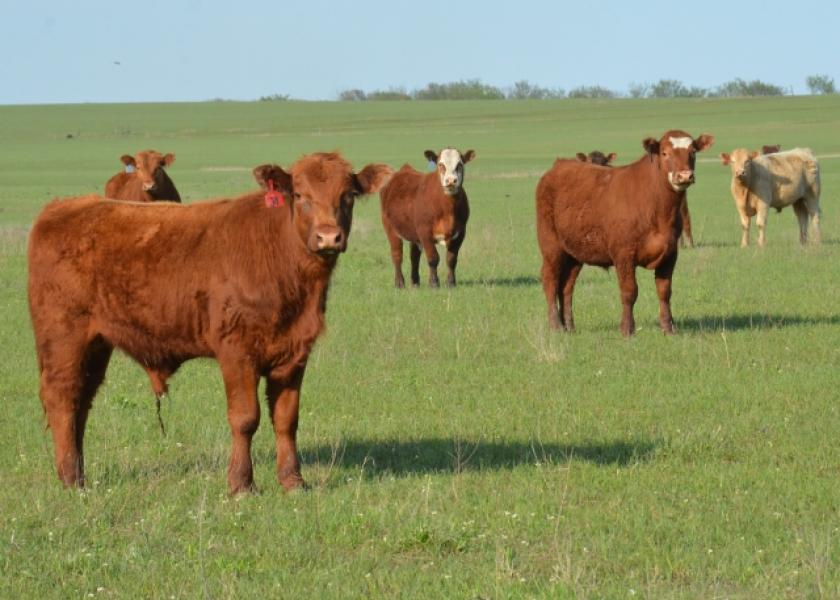Genomics for Stockers?

Each year, thousands of calves are purchased, sorted and commingled in stocker operations. With a national cowherd size less than 40 head, this process is vital to our industry’s supply lines. Stocker operators fill these gaps and help spread the timing of supply.
Hide color and breed character are the only tools currently available to sort stockers, and there is little information regarding genetic potential. Because genetic information has huge value, is there a role genomics, or DNA, can play for the stocker operator?
Genomics, for instance, could help sort high-grid premium cattle from commodity performers, and operators can use that information during the marketing process to differentiate premium load lots to add value. Further, a stocker operator that likes to retain ownership of a percentage of his or her grass yearlings can use DNA to sort the optimum group.
Oklarida Cattle Co., which spans from eastern Florida to the native grasslands of Oklahoma and Kansas, has both Gulf Coast influenced cattle and a large assortment from areas throughout the Midwest. Within their population of stockers, there will be cattle representative across the entire genetic bell curve for health, growth and carcass traits.
According to Oklarida Cattle Co. co-owner, Jess Kane, “Aside from gain, the key to our business is upgrading. We can upgrade through sorting into marketable load lots and improving health and performance. If there was a way to incorporate genetics into the equation, it could be another useful tool.”
Kane says health trumps all other factors relating to profitability. If affordable, DNA testing could help segregate high-risk, hard to manage cattle from those that represent a relatively low health
risk. In the near future, technology will exist that can help producers integrate genetics into analytics programs to add to management precision.
It’s clear genomics have a place in the stocker segment, but at what price does it become a feasible tool?
The seedstock segments have successfully used genomics as their margins are relatively higher than commercial operations. It seems widespread adoption of this technology by the commercial segments all along the value chain will be a challenge until the cost benefit components enhance the value they deliver.
Right now, the DNA products that exist are a cost at their current prices, not a benefit. This technology is not cheap to produce, so the present price structure is understandable. Hopefully, we are nearing the time when cost is no longer a barrier and the incorporation of genomic testing becomes a “typical” management strategy for stocker operations. This often forgotten segment is extremely vast in size and scope, and at present, seems to represent a willing customer base.
Jared Wareham is general manager of Top Dollar Angus, the industry leader for genetic certification of top-end Angus and Red Angus feeder cattle, bred heifers and seedstock. You can contact him at: jared@toddollarangus.com.







